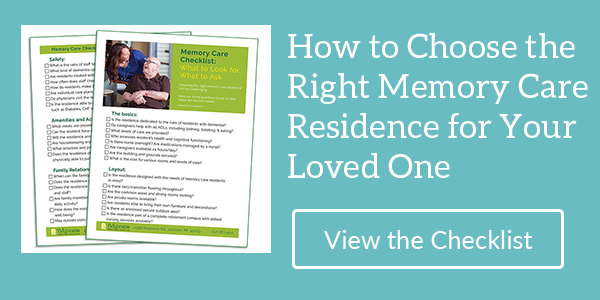There are many care options as your loved ones age. For those with serious health issues, a nursing facility or memory care center may be best, while those looking for companionship and socialization may be better suited to a senior or independent living community.
If they’re generally in good health and spirits but need assistance with certain medical conditions or daily tasks, home care is often the best choice. Not only does this allow them to stay in their own home, where they’re comfortable and familiar with their surroundings, but it lets them maintain their independence and confidence – an important aspect of aging gracefully.
But finding an in-home caregiver is no easy feat – nor should it be. Whether the caretaker is living with your loved one or simply dropping by once a week with groceries, any in-home care provider needs to be experienced, knowledgeable and thoroughly vetted.
Do you need help finding a good in-home care provider for your aging family member? Then follow these tips:
Know what you need.
First and foremost, it’s important to get a clear picture of what your loved one needs – and how often they’re going to need it. Are you only looking for someone to stop by, spend a few hours with them and help them tidy up around the house once a week? Or do you need something more comprehensive? Do you need health care services or medical help, or is companionship more the goal? What about assistance with daily tasks, like bathing, dressing or eating? Make a thorough list of everything your loved one needs, as well as the schedule they need them on. This will help guide what type of in-home care providers you should look to.
Solicit referrals.
Talk to your loved one’s doctors, nurses and even friends, and see if they have caregivers they’d recommend. Look to trusted assisted living communities and ask if they offer off-site, in-home services as well. Be sure to check reviews online, and head to BetterBusinessBureau.org to make sure there are no outstanding issues with the provider or their employer.
Check their credentials.
At the very least, you want your caregiver certified in CPR and first-aid practices – even if they’re not doing any heavy duty health care. If your loved one requires more specific medical care, make sure the provider has the degree and license they claim to. You can usually check for these with your county or state regulatory agency, as well as through CertificationMatters.org (if you’re in need of a licensed, board-certified doctor.)
Run a background check.
If the caregiver is going to be alone with your loved one at any time, running a background check is vital – both for your loved one’s safety and the safety of their belongings and property. You should also do a cursory Google search of the person’s name. Check out their social media profiles and make sure nothing seems fishy or off. If anything gives you a bad feeling, remove them from your list and keep looking. Both you and your loved one need to feel completely at ease about your decision.
Ask for references.
You don’t want a caregiver who’s inexperienced or has never held down a job, so be sure to ask for references from anyone you’re seriously considering hiring. Get the names and numbers of their last few patients or employers, and call one or two up to get an honest appraisal of the person’s qualifications and work ethic. Make sure you know what you’re getting into before you start the hiring process.
Know your responsibilities.
If you’re hiring an agency, will your loved one’s insurance or Medicare cover the costs? Will you need to foot the bill or pay it out of your loved one’s accounts? What about taxes, insurance, benefits and other line-items? Try to get an idea of what you can and can’t afford, and get with an accountant to make sure you’re doing things legally and in the best financial interest of your family member.
Try them out – in a supervised setting.
If it’s possible, give any caregiver you’re considering a trial run. Have them visit your loved one on a weekend when you can be around in case something goes awry. Do this a few times before leaving them on their own – and even then, only do so for a short amount of time. Once they’ve left, talk to your loved one about their experience. How were they treated? Did they feel neglected or scared at any point? Was the provider caring and knowledgeable?
Check in on a regular basis.
Even once you hire a caregiver, you shouldn’t let your guard down. Elder abuse is common and can worsen over time. Make sure to pop in unannounced on occasion to check on your loved one and their caretaker. How do they act when you arrive? Is your loved one quiet or scared? Are there bruises, marks or bedsores? If you ever feel suspicious that neglect or abuse is afoot, consider installing a nanny cam or other type of security camera. Many of these can sync to your phone, allowing you to check in at any time, from anywhere.
Consider Ganton’s Home Care Services
If you think in-home care may be the best fit for your aging loved one, stop by Ganton’s Countryside today. We have two unique home care options: one for medical/health care services like skilled nursing and physical therapy, and a second for non-medical needs, including housekeeping, medication management, transportation, meal prep or companionship. Both can be customized to your loved one’s exact needs and preferences.
If memory care is a concern for you, check our our guide on memory loss and memory care. If one of these options isn’t right for your loved one, we also offer a variety of other elder care facilities, including independent living, assisted living, memory care and rehabilitation centers. Stop by and learn more about our options today or call Margaret Nagel at (517) 206-5000 or download our brochure to learn about our care levels, cost, and amenities.


